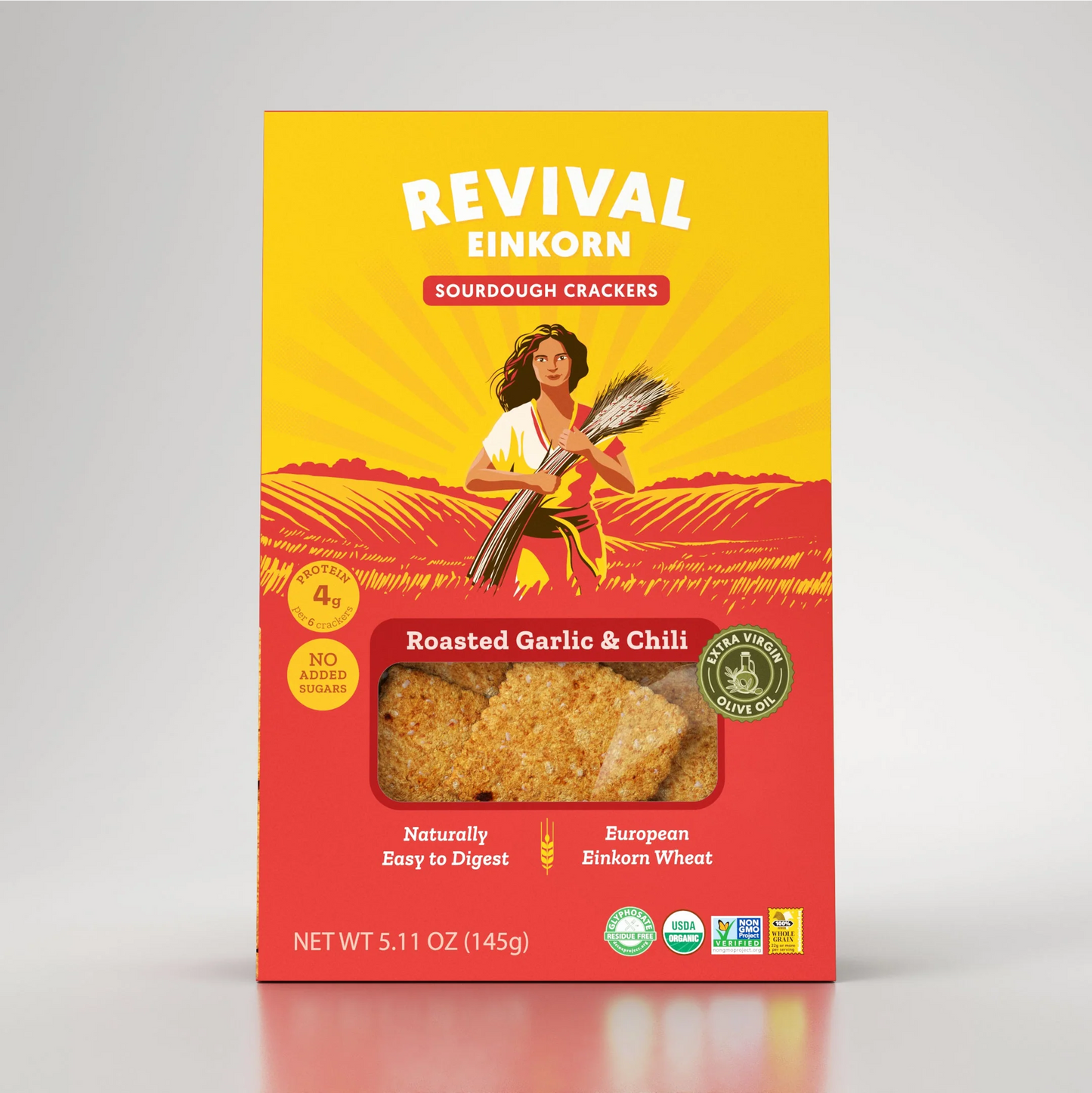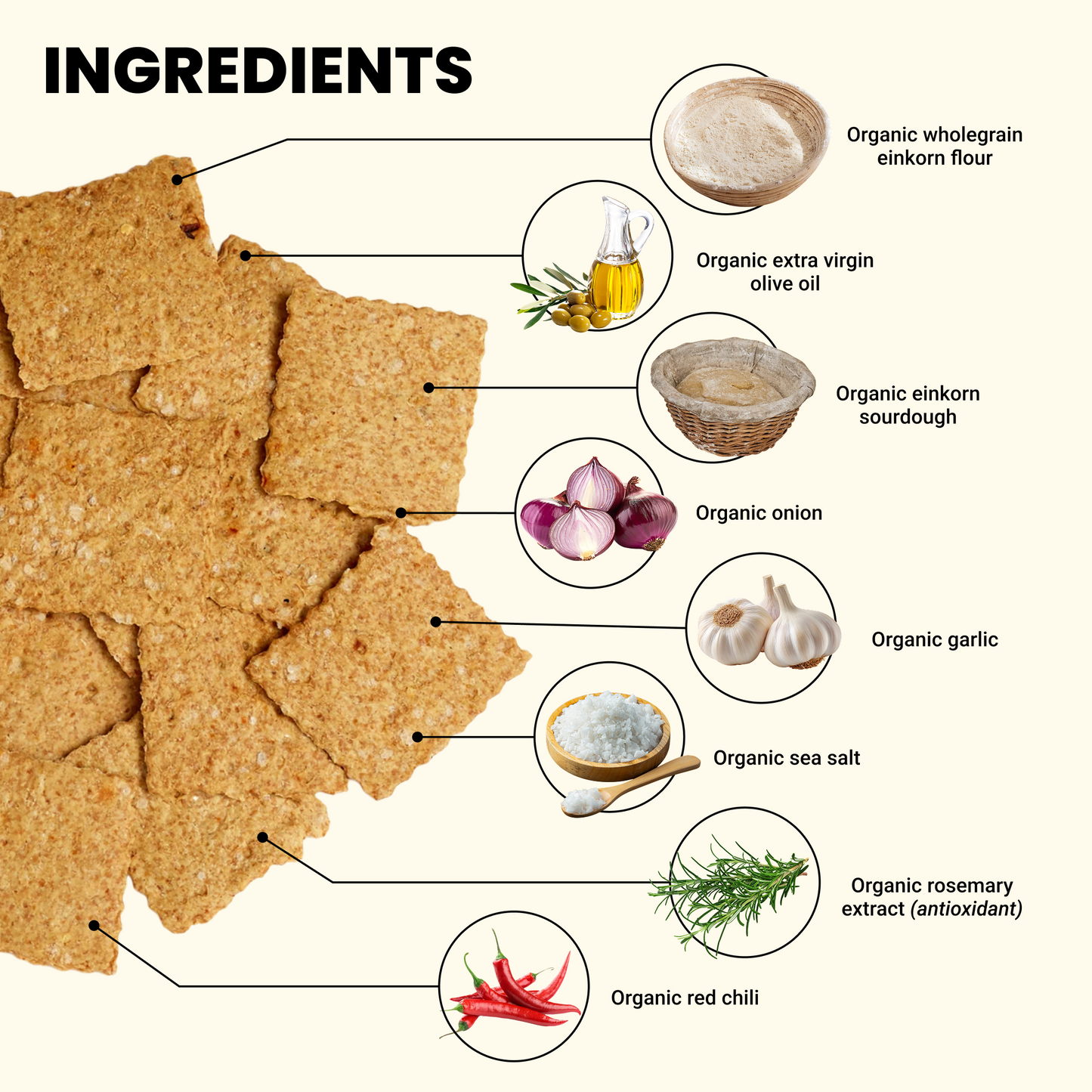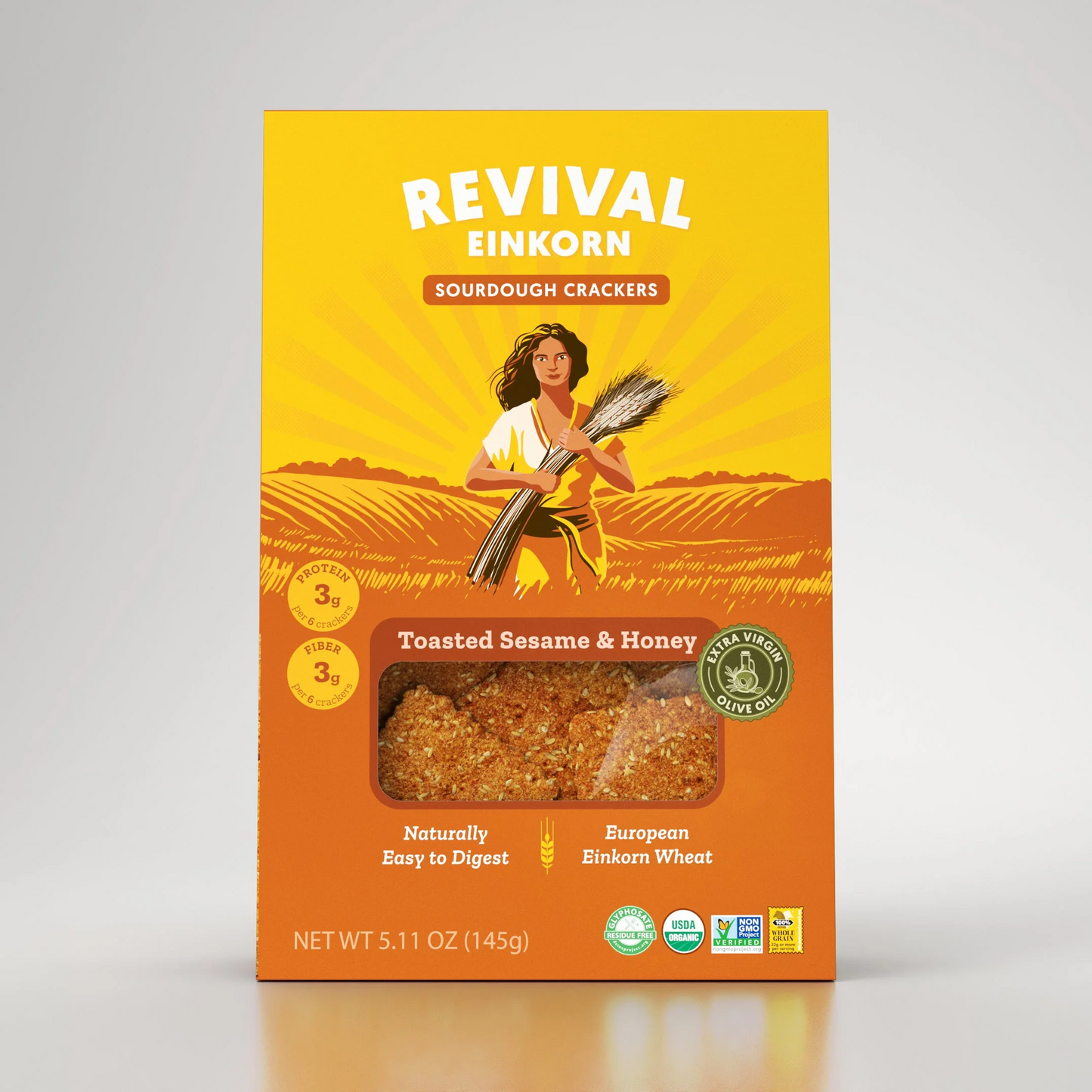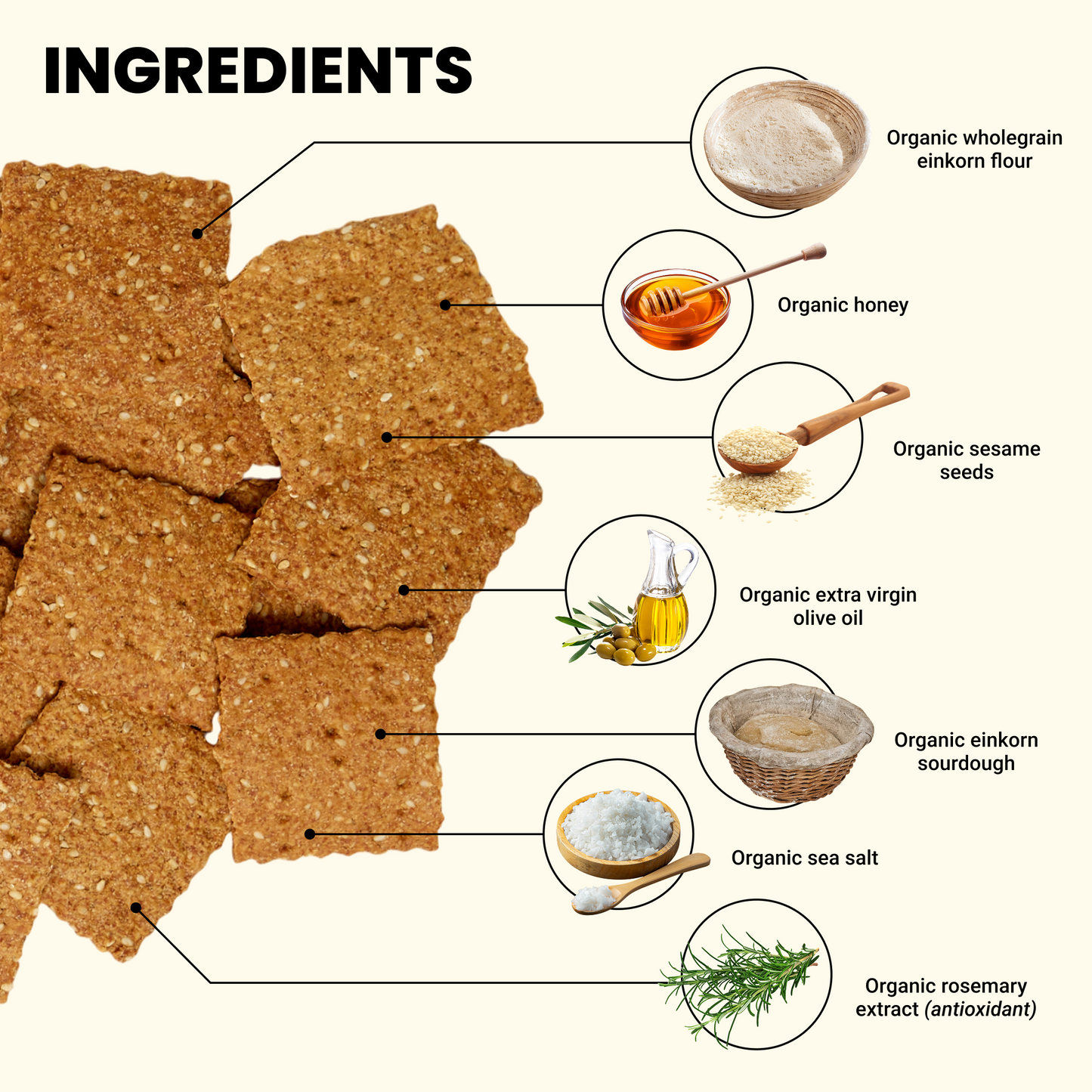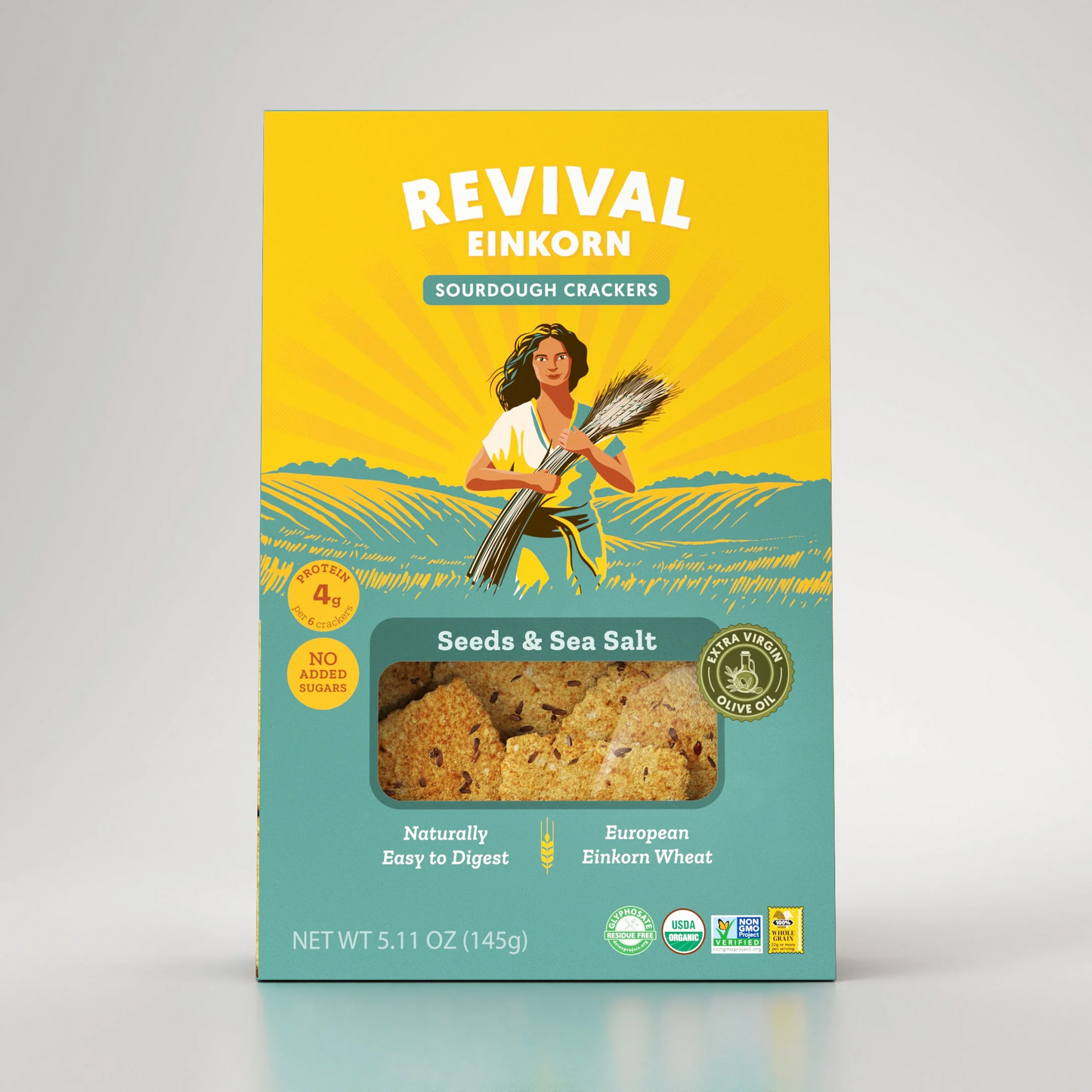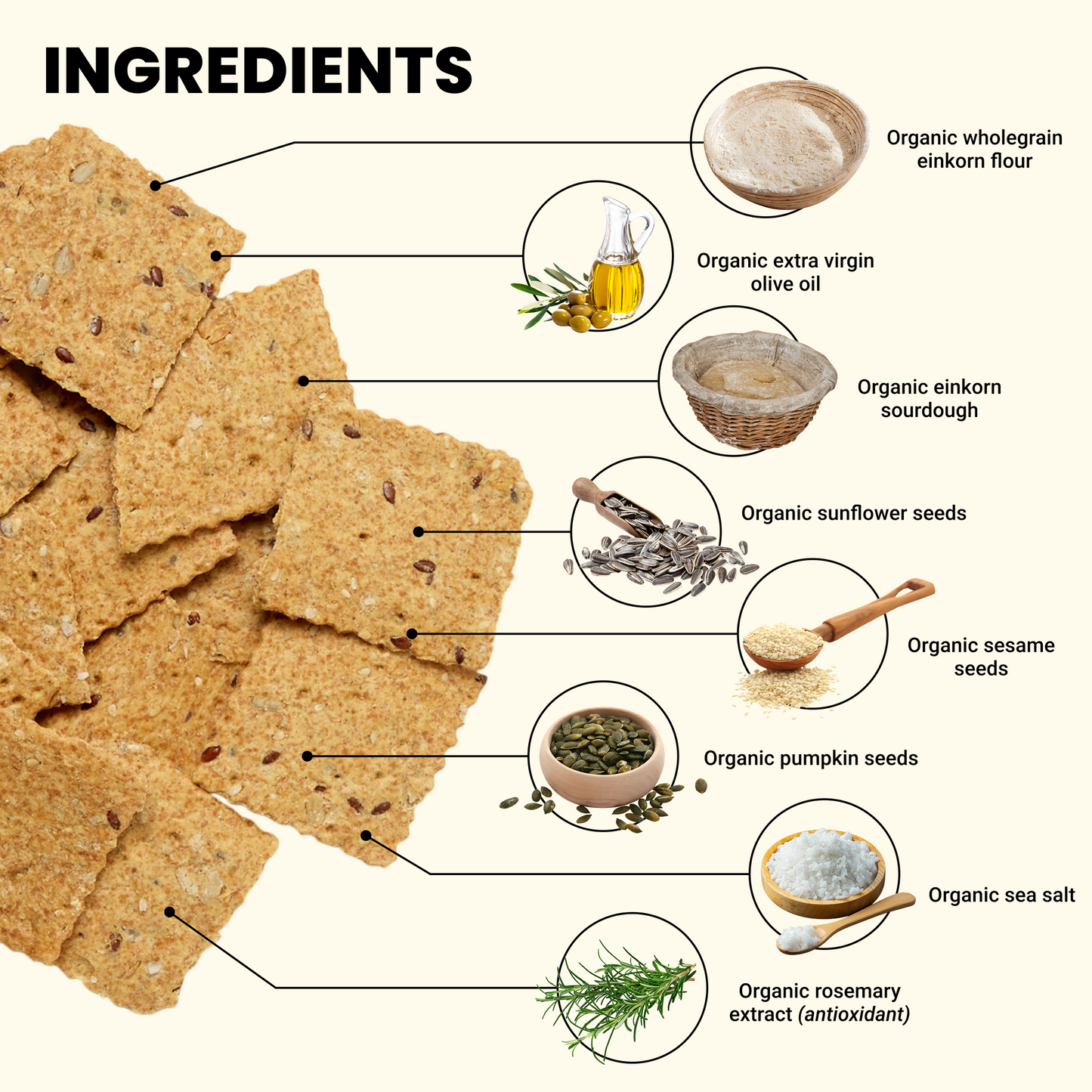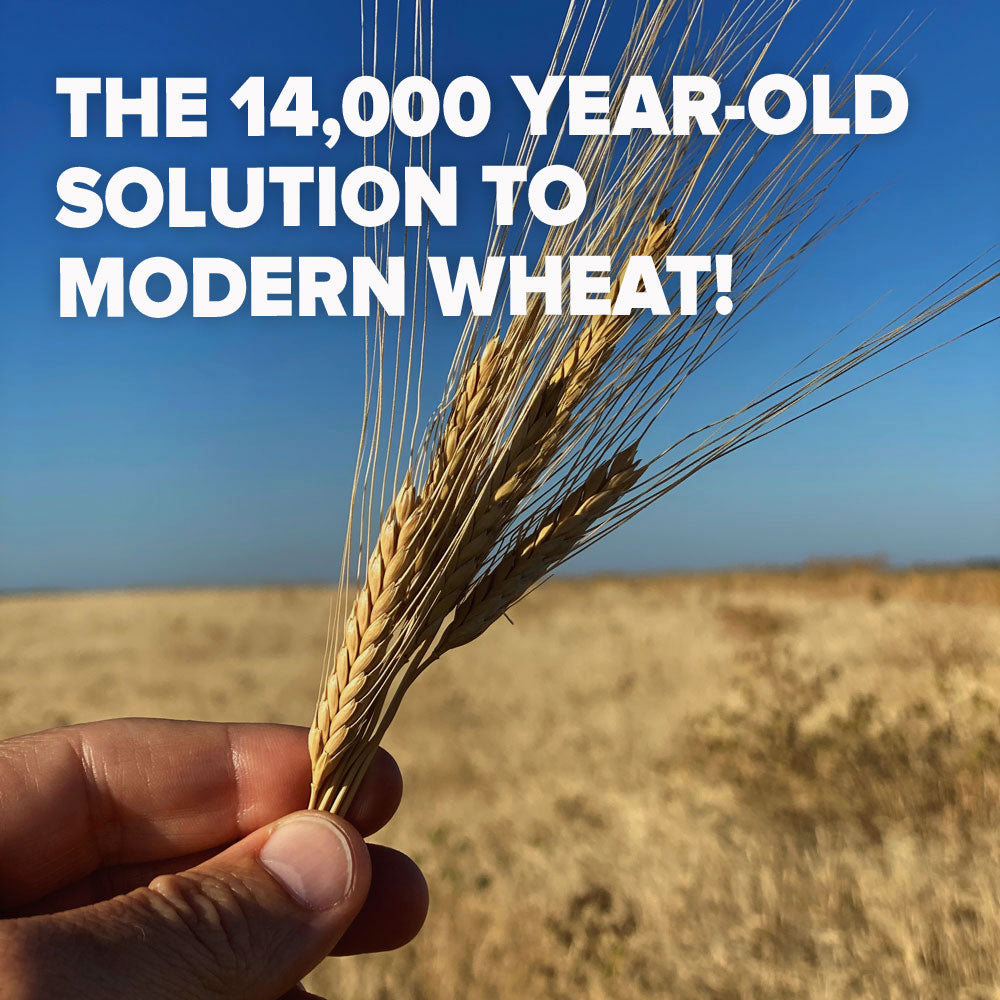
About 12,000 years ago inhabitants of Mesopotamia began to provide themselves with a more reliable food source, a divergence from their hunting and gathering ways. They invented farming!
And the very first wheat they grew? You could probably guess, Einkorn (Triticum monococcum). Not only did they supplement their well earned meat and wild flora diet with this unique complete food, they cultivated the first drought-tolerant, pest resistant and sustainable food source, organic einkorn wheat. This was the beginning of a new era for humankind.
Being the first farmed wheat, Revival Einkorn is the only non-hybridized species of wheat and is the only diploid variety. Unfortunately, by the Modern Age it had all but disappeared from the human diet, being replaced with hybridized modern grains. These modern wheats were created to be resistant to common farming challenges and increase yields for a growing population, fighting famine, and unfortunately for us, abandoning the ancient grains our ancestors relied upon.

Today’s hybridized wheat varieties have little to nothing in common with ancient grains, like einkorn. Einkorn wheat has a complete nutritional profile, providing an amazing source of fiber, richer in minerals, vitamins, antioxidants and protein than any modern wheat flour. Einkorn’s low antigen levels and single ‘AA’ pair of chromosomes makes it far more digestible and it is a great option for those with a gluten sensitivity. Hybridized modern wheat molecules are more complex, the starches becoming more harmful, providing less overall nutrition, less digestible, thus rendering modern wheat far more harmful than healthy. Combined with modern farming methods requiring vast inputs of fertilizers and pesticides, the negative impacts on soil health, milling and food processing, plus a focus on a higher crop yield, modern wheat is a far stretch genetically and nutritionally from what our ancestors ate thousands of years ago. This doesn't paint a pretty picture for the future of our food, the planet and for us, but there is hope.
Einkorn has played an important role in the roots of farming, though it has been sidelined for centuries, the declining health of humanity and that of the planet makes giving einkorn a second chance well worth it. And so begins the story of Revival Einkorn.
